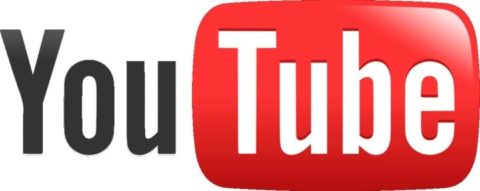How important are YouTube tags and what are good YouTube tags and metadata? And how effective are these YouTube SEO tools?

First of all, like most SEO things, we are talking about parameters that are used by different AIs to make decisions. And these parameters are subject to constant adjustments by the self-learning AIs on the one hand, and the Google staff is also constantly working on the weightings of these parameters. New parameters are also constantly being defined and made measurable for the AIs, and old parameters are reduced in weight or removed completely. And these metadata points is then evaluated completely differently by different AIs.
German Version:
- How important are YouTube tags and what are good YouTube tags and metadata? And how effective are these YouTube SEO tools?
- German Version:
- YouTube SEO 2020 – Metadata and tags in flux
- Basics about tags and metadata:
- Real measurements replace YouTube metadata and tags
- YouTube tags for a good video start
- Video Recommendation: Creator Insider YouTube Myth Busting
- So what are good YouTube tags and metadata?
- The YouTube SEO Tools and the quality of their output
- YouTube search volume is a pure guessing game
- Conclusion on YouTube tags and MetaData:
YouTube SEO 2020 – Metadata and tags in flux
So this complex SEO is constantly changing and in motion, and even the YouTube staff working on this probably can’t tell you exactly what is important and how important it is, because the whole system has become so complex that no one has a complete overview.
If someone analyzes this field, he can only analyze what has been in the last months, years, etc. So even the most scientific information on this is usually out of date the moment it is written down. And all YouTube tips and tricks, or marketing courses, which are often sold for a lot of money, and also most of the tools, which you can use for free and also those, which cost money, are in the best case based on these analyses from ” yesterday “. In many cases, however, it is also simply assumed, guessed, assumed and often simply told the blue from the sky, the main thing that matters is that someone pays a lot for the courses and tools.
For many YouTuber and “SEO experts” it has been one of the main fields of work for many years to feed YouTube misinformation about videos in order to get rankings for things that the content was not suitable for. And that led many years to the fact that the search results were often very bad. But since the goal of the search engine is to offer the searcher the best possible search result that is possible, YouTube (and Google) has learned, and this insight has also taught the AIs, “the statements of the creator are to be taken with caution, they like to cheat”.
Basics about tags and metadata:
Tags have lost a lot of their effect. They used to be one of the most important SEO (search engine optimization) features. However, as they were often and heavily used, as already mentioned, to give the search engines false information about the video, the weighting of YouTube’s tags has been almost completely reduced.
Tags belong to the metadata that you can specify as the creator yourself. With the manual metadata, however, first of all the title and the description are important, followed by the speech recognition, which can also be recognized in the subtitles, there is also image recognition via thumbnails, intermediate images, and even the video material is now done. The keyword here is Google Vision KI, thus AI-supported recognition of image content. This means that what can be seen in the video can be read out with a meanwhile quite good recognition rate. Combined with speech recognition, it is possible to make at least an approximate evaluation of what the video is about and this data is constantly being improved and is now included in the metadata. And at the very edge of this and much other metadata are the tags. This metadata is used in the first 24-48h of YouTube to understand the content of the video. In principle, the YouTube system also works completely without tags, they just help a little bit to start the extraction of the really relevant data.
Real measurements replace YouTube metadata and tags
Denn ist das Video dann erstmal online, ändert sich das Bild sehr schnell. Mit jedem Zuschauer, der das Thumbnail zu sehen bekommt (Impression) und jedem Zuschauer der wirklich klickt (CTR und View) und mit jeder Minute die geschaut wird (Watchtime, average Watchtime, Retention) verschiebt sich diese Datenbasis nämlich immer mehr hin zu gemessenen Real-Daten. Hier zählt nicht nur, ob jemand klickt, sondern auch wer hat auf das Thumbnail geklickt, wie sind dessen allgemeine Interessen, wie lange hat die Person geschaut, welche Videos wurden vorher und nachher geschaut, welche Videos haben Leute angeschaut, die ähnliche Interessen haben, wie diese Person, etc, etc.
Es werden permanent Unmengen an Experimenten durchgeführt, indem das Thumbnail des Videos neben vermutet verwandten Videos angezeigt wird und gemessen wird, ob die Leute darauf reagieren oder nicht und damit werden Beziehungen aufgebaut zwischen verwandten Videos. Andersherum werden auch durch manuelle Metadaten angegebene Beziehungen geprüft und gemessen und eventuell bestätigt oder entkräftet. Je mehr dieser Messdaten YouTube hat, desto schwächer werden die Metadaten an sich gewichtet. Und wenn irgendwann ein paar Hundert Views auf dem Video sind, ist an irgendeinem Punkt der Einfluss der Tags auf nahezu Null gesunken.
YouTube tags for a good video start
That’s why tags are still helpful for a good start, so that it becomes clearer from the beginning what the video is about. But compared to a few years ago, they have become almost unimportant. Many YouTube Tips channels and blogs are either so old that they didn’t know it back then, or they just keep repeating the old stuff from the old days. Therefore, you should take many of these tips and tricks and especially the paid courses with a grain of salt and think twice before spending money on such things. Most of the time they sell outdated knowledge for expensive money.
Important side-note in addition: Whenever you change the manual metadata of a video afterward, the measured data will be slightly invalidated and new measurements will be started to check the changed manual metadata. This can break the neck of a good performing video if you are unlucky, but it can also lead to a resurrection of dead videos. So always make subsequent changes with some caution and preferably never change a well-performing video.
Video Recommendation: Creator Insider YouTube Myth Busting
This video series from the Creator Insider Channel about ” YouTube Myth Busting is quite interesting, because that Todd who speaks there is one of the main developers of YouTube Search and Discovery, meaning this man is very much involved in the development of Search, Suggested and other AIs:
So what are good YouTube tags and metadata?
In general, the effect of tags for the search has become less and less. But they still have a certain long-term effect on the relationships between different videos, both on their own channel and across channels. And most of the experts and advisors who rely on measurements and analysis (as said above from the past) now say that the trend is moving away from single keywords and towards keyword phrases. So no longer [best][keyword][optimization] but rather [best video keyword optimization] and [best keyword optimization for youtube videos].
Keyword phrases should go in the direction that they match exact search queries from users. The better the metadata covers these search queries, the higher the relevance for specific searches. And relevancy is the default sorting method by which search results are presented.
So you can still target search terms when you define your metadata, title, description, and tags for a video. However, you should first check whether a search query occurs at all. You can use tools to do this, or simply use the YouTube autocomplete feature yourself (the tools do nothing different). However, this only tells you if a term is searched often or not. Nobody can tell you if the term will be searched in the future, except maybe Google Trends or similar more abstract tools.
And then you should also investigate, how many search results are existing for a search term and how well are they viewed? Because this analysis of the competition decides in the end, whether you stand on page 1 to a not so often searched term and get at least a few views, or whether you aim at a frequently searched term, but are shown due to the oversupply of search results on page 258, and therefore get no views at all. Often the weaker Keywords are the better ones, unless you are a huge channel.
The YouTube SEO Tools and the quality of their output
More or less no one and no tool in the world can give you really reliable information about how strong the competition is in this area. Unless you search for it manually and look and analyze the vieos of the competition and trust your instincts a little bit. Some tools do at least a little bit of analysis, but almost all of them are solely focused on the American market. Both YouTube and Google search results (SERPs) are strongly weighted differently from region to region, and there is also an additional weighting for each individual user, based on their search profile and previous search queries.
So information about search volume given by any of these tools can only be very rough approximations. Especially TubeBuddy and VidIQ work maybe in the USA a little bit, roughly close to reality, but with a very high error rate. But outside the USA they work much less reliable because they don’t use international servers for their search queries, but their servers are located in the USA and therefore all analyses and evaluations of search results, keywords, etc. are only aimed at the US market. Much of the information provided by these tools is purely mystical coffee grounds reading. There are 1-2 tools that take this into account, such as Morningfame (more about this tool coming soon here), but even there, all specifications are only approximate values.
YouTube search volume is a pure guessing game
And the information that these tools then give as “search volume”, on which in the end almost all evaluations are based, whether a keyword or keyword phrase is “worthwhile” or not, are pure estimates. This data is not available for anybody to query, the API query does not give this information at all. Here we finally get into the spiritual and pseudo-helpful realm. This is where the (mostly paying) customers are led to believe that these tools have secret knowledge, but this is no knowledge at all. It is a very rough approximation based on a few data points, which does not correspond to the complete and real situation.
Again, if you don’t live in the USA, and don’t target USA viewers, the data from these tools is again even more unreliable. In most cases, these ratings are extremely wrong in the end. And at the latest with terms that are in the process of declining or that will soon arise, they are almost always 100% wrong. There you may as well throw a dice or toss a coin.
Conclusion on YouTube tags and MetaData:
So don’t listen to these tools in faith. There YouTube Tags are often depicted as the holy grail, they aren’t (anymore). Some information may be helpful, but most of them are rather meaningless or even misleading.
https://zapzockt.de/en/youtube-tipps-tricks-infos-news-en/Today I have written a lot about what is not true about YouTube Tags and Metadata, you can find more information about this in the overview of the YouTube Tips and Tricks collection, but I will publish more about this topic in the near future, so feel free to check back from time to time.
Reading – recommendations:
A lot of detailed games news and information about games and gaming can always be found here at ZapZockt.de
There are also many game reviews that might interest you, and if you don’t want to miss anything, subscribe to the newsletter. As a Google News reader, you can also go there and read the latest articles.
Follow ZapZockt on Social Media:
ZapZockt Socials + Links:







